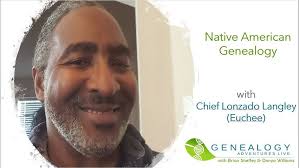Uncovering Roots: The Vital Role of the Native American Genealogist
The Importance of Native American Genealogists
Native American genealogists play a crucial role in preserving the rich heritage and history of Indigenous peoples. Through their dedicated research and expertise, these professionals uncover valuable information about family lineages, cultural traditions, and ancestral connections that might otherwise be lost to time.
One of the key responsibilities of Native American genealogists is to help tribal members trace their roots and understand their unique identity within their community. By delving into historical records, oral histories, and traditional knowledge, these specialists provide invaluable insights that contribute to a deeper appreciation of Indigenous heritage.
Furthermore, Native American genealogists often collaborate with tribal governments, cultural institutions, and academic researchers to document family histories, land ownership patterns, and kinship networks. Their work not only sheds light on the past but also helps strengthen the sense of belonging and continuity among tribal members.
In addition to their research skills, Native American genealogists bring a deep respect for cultural protocols and privacy considerations when working with sensitive information. They navigate complex tribal affiliations, clan relationships, and ceremonial practices with sensitivity and integrity, ensuring that their work honors the traditions and values of the communities they serve.
Overall, Native American genealogists serve as guardians of ancestral knowledge and custodians of Indigenous history. Their dedication to preserving and sharing this vital information contributes not only to individual family narratives but also to the collective memory and resilience of Indigenous peoples across generations.
5 Essential Tips for Tracing Native American Ancestry with Respect and Accuracy
- Research tribal records and enrollment documents to trace Native American ancestry.
- Consult with tribal elders and genealogists within the community for guidance and information.
- Utilize online resources such as Native American-specific databases and archives for research.
- Consider DNA testing through reputable companies specializing in Native American ancestry.
- Respect tribal sovereignty and cultural protocols when conducting genealogical research among Native American communities.
Research tribal records and enrollment documents to trace Native American ancestry.
To trace Native American ancestry effectively, it is essential to research tribal records and enrollment documents. These valuable resources provide detailed information about tribal affiliations, family connections, and historical lineage that can illuminate one’s Indigenous heritage. By delving into these records with care and attention to detail, Native American genealogists can uncover vital clues that help individuals piece together their family history and deepen their understanding of their cultural roots.
Consult with tribal elders and genealogists within the community for guidance and information.
Consulting with tribal elders and genealogists within the community is a valuable tip for anyone delving into Native American genealogy. These individuals possess a wealth of knowledge, traditional wisdom, and firsthand experiences that can offer invaluable guidance and insights into family histories, cultural practices, and ancestral connections. By engaging with these respected community members, researchers can gain a deeper understanding of tribal traditions, oral histories, and genealogical nuances that may not be readily accessible through conventional sources. Building relationships with tribal elders and genealogists fosters mutual respect, cultural exchange, and collaboration in uncovering and preserving the rich heritage of Indigenous peoples.
Utilize online resources such as Native American-specific databases and archives for research.
To enhance your Native American genealogy research, it is highly beneficial to leverage online resources like Native American-specific databases and archives. These specialized platforms offer a wealth of valuable information, including historical records, tribal documents, and genealogical data that can provide crucial insights into your ancestors’ lives and connections. By tapping into these online resources, you can uncover hidden family histories, trace lineage more effectively, and deepen your understanding of Indigenous heritage in a digital age.
Consider DNA testing through reputable companies specializing in Native American ancestry.
Consider DNA testing through reputable companies specializing in Native American ancestry to enhance your genealogical research. DNA testing can provide valuable insights into your genetic heritage, helping you uncover connections to specific Native American tribes and populations. By opting for reputable companies with expertise in Native American ancestry, you can ensure accurate results and access to databases tailored to Indigenous genetic markers. This additional tool can complement traditional genealogical methods and offer a more comprehensive understanding of your Indigenous roots.
Respect tribal sovereignty and cultural protocols when conducting genealogical research among Native American communities.
When engaging in genealogical research within Native American communities, it is essential to uphold the principles of tribal sovereignty and respect cultural protocols. By honoring the autonomy and self-governance of Indigenous nations, genealogists demonstrate a deep appreciation for the unique traditions and values that guide these communities. Adhering to cultural protocols ensures that research is conducted in a manner that is sensitive to the historical experiences and spiritual beliefs of Native peoples, fostering trust and collaboration in uncovering ancestral connections and preserving heritage for future generations.

